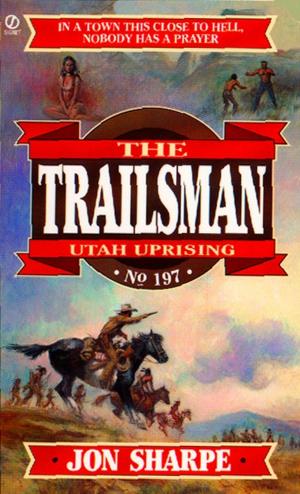Do Nothing!
How to Stop Overmanaging and Become a Great Leader
Business & Finance, Management & Leadership, Decision Making & Problem Solving, Leadership, Management| Author: | J. Keith Murnighan | ISBN: | 9781101571965 |
| Publisher: | Penguin Publishing Group | Publication: | June 14, 2012 |
| Imprint: | Portfolio | Language: | English |
| Author: | J. Keith Murnighan |
| ISBN: | 9781101571965 |
| Publisher: | Penguin Publishing Group |
| Publication: | June 14, 2012 |
| Imprint: | Portfolio |
| Language: | English |
Imagine you’ve just come back to work after a two-week vacation during which you actually relaxed, without calling in or checking e-mail. You discover that there are no pressing issues and that, on the contrary, your team scored a big new customer and fixed a nagging problem during your absence. No red flags or fires to put out.
Sadly, for most leaders this scenario is only a dream. They constantly check on what’s happening because they expect the worst (and usually get it). But Keith Murnighan shows that not only is “do nothing” leadership possible, it is also far more effective than doing too much.
Great leaders don’t work; they facilitate and orchestrate. They think of great strategies and help others implement them. They spend their time preparing for the future. They take a comprehensive view of their terrain while also noticing key details so they can confidently choose the right forks in the road.
In other words, great leaders don’t do anything—except think, make key decisions, help people do their jobs better, and add a touch of organizational control to make sure the final recipes come out okay. In sharp contrast, most leaders are too busy actually working to do these things—and their teams suffer as a result.
Do Nothing!’s practical strategies and true stories will show you how to set high expectations for your team and watch it rise to the challenge. It will help you establish a healthier culture by trusting people more than they expect to be trusted. And it will help you overcome your natural tendencies toward micromanagement so you can let people do their jobs—even when you know you could do their jobs better.
As Murnighan writes, “My experience suggests that you will be surprised—wildly surprised. People on your team will reveal skills you never knew they had and will accomplish things that go far beyond your estimate of their capabilities. They might not do things the way you would do them, but they will get results you never expected. Everyone has hidden talents, and most leaders never discover them. Before you reject this approach, ask yourself: what if you did nothing and it actually worked?”
Imagine you’ve just come back to work after a two-week vacation during which you actually relaxed, without calling in or checking e-mail. You discover that there are no pressing issues and that, on the contrary, your team scored a big new customer and fixed a nagging problem during your absence. No red flags or fires to put out.
Sadly, for most leaders this scenario is only a dream. They constantly check on what’s happening because they expect the worst (and usually get it). But Keith Murnighan shows that not only is “do nothing” leadership possible, it is also far more effective than doing too much.
Great leaders don’t work; they facilitate and orchestrate. They think of great strategies and help others implement them. They spend their time preparing for the future. They take a comprehensive view of their terrain while also noticing key details so they can confidently choose the right forks in the road.
In other words, great leaders don’t do anything—except think, make key decisions, help people do their jobs better, and add a touch of organizational control to make sure the final recipes come out okay. In sharp contrast, most leaders are too busy actually working to do these things—and their teams suffer as a result.
Do Nothing!’s practical strategies and true stories will show you how to set high expectations for your team and watch it rise to the challenge. It will help you establish a healthier culture by trusting people more than they expect to be trusted. And it will help you overcome your natural tendencies toward micromanagement so you can let people do their jobs—even when you know you could do their jobs better.
As Murnighan writes, “My experience suggests that you will be surprised—wildly surprised. People on your team will reveal skills you never knew they had and will accomplish things that go far beyond your estimate of their capabilities. They might not do things the way you would do them, but they will get results you never expected. Everyone has hidden talents, and most leaders never discover them. Before you reject this approach, ask yourself: what if you did nothing and it actually worked?”















